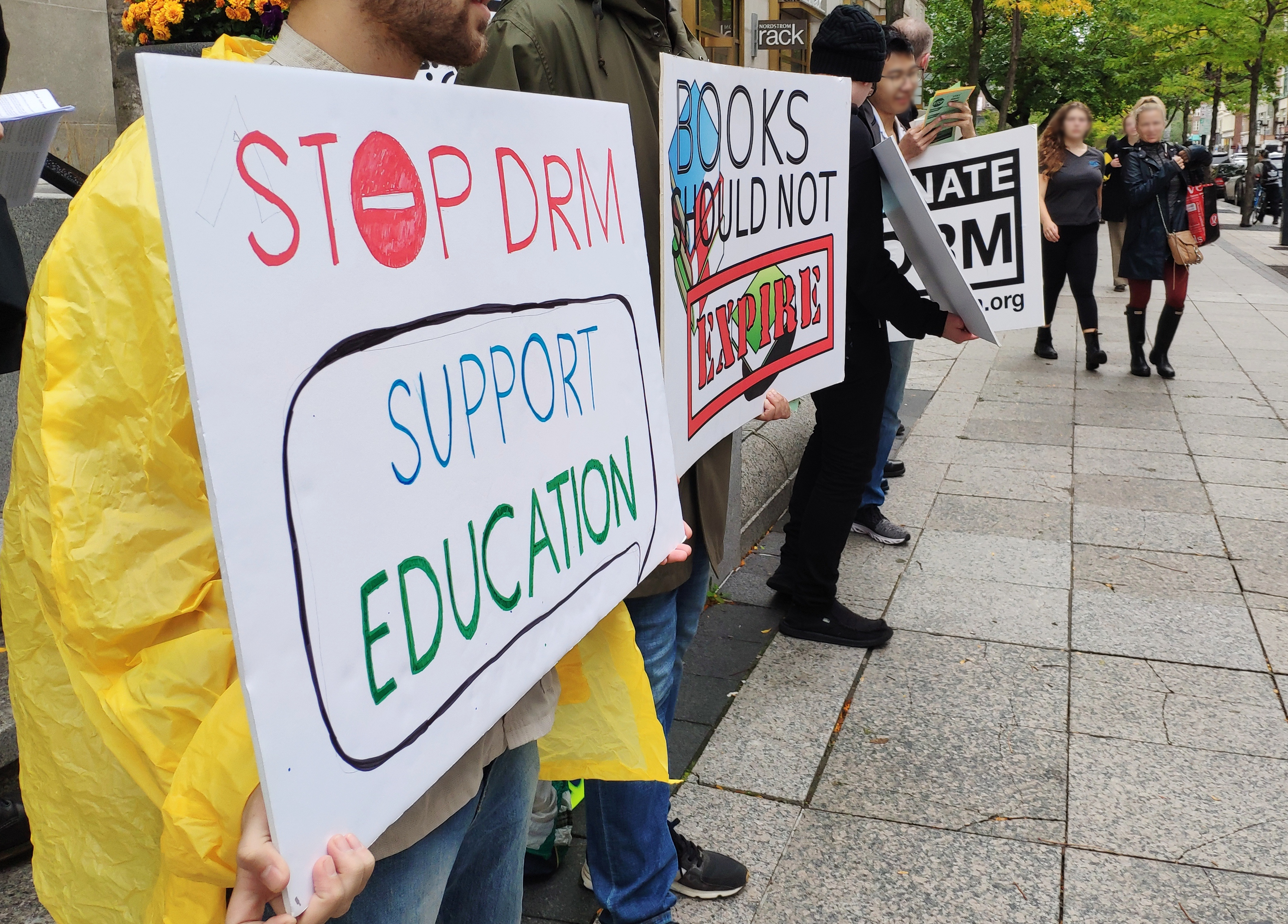IDAD 2019: Thank you for defending the right to read!
mardi 29 octobre 2019 à 18:33
Now that the dust has settled and we have made our voices heard, we would like to give a sincere thanks to everyone who helped to make the International Day Against DRM (IDAD) 2019 possible. This is the thirteenth year that we have come together to voice our dissent against the unjust power of Digital Restrictions Management (DRM), and we could not have done it without the help of digital rights activists from all over the world.
In our continued fight against DRM, we make it clear that we reject a world in which learning is shackled behind draconian restrictions. On IDAD 2019, we used our strength in numbers to tell Pearson that restricting access to textbooks is antithetical to the human right to education. Here in Boston, we protested outside the Pearson building, and spoke with a wide range of students and shoppers about the importance of their digital rights. Demonstrating our own commitment to a culture based on sharing rather than exclusion, we also worked in the FSF office, and remotely with collaborators from around the world, to make contributions to ethical and DRM-free educational materials.
The digital version of the dust jacket we made for this year's event is already available in six languages, with at least two more currently in the final stages of editing. It will remain freely available for you to print and share to spread the message of our resistance to media restriction. If you have a translation into your native language that you want to contribute, please write to us at campaigns@fsf.org.
With the help of our 15 participating organizations this year, including the Electronic Frontier Foundation, Creative Commons, APRIL, and Question Copyright, we proved once again that DRM is an issue that affects all owners of digital media, and is not just the concern of technologists. We would especially like to thank the FCK DRM campaign for highlighting our efforts in a newsletter that reaches more than eight million people worldwide, as well as No Starch Press, Leanpub, and Libreture for sales on DRM-free works that they held in conjunction with this year's IDAD.
Defective by Design continues its fight against DRM year-round, and there's still much more to be done. Just in the last week we have heard of the Disney+ streaming service's use of the highest level of Widevine DRM, and the forthcoming Google Stadia project is going to make a strong attempt at eliminating even the idea of digital game ownership. Here at Defective by Design, we are already brainstorming new ways to combat these attacks on our freedom, but to continue doing so we need your help.
To fight DRM, we need vigilant activists who will stand firm in defending the digital freedoms of those in their communities. We encourage any and all anti-DRM activists to join us as part of the Defective by Design email announce list, or to communicate with us in real-time in the #dbd channel of the Freenode Internet Relay Chat (IRC) network. Given the vast amount of resources corporations like Pearson, Disney, Netflix, Amazon, and Google have at their disposal, we are reliant on the community for donations to Defective by Design's mission to end DRM once and for all.
All of us at Defective by Design extend our heartfelt thanks and appreciation to everyone who participated this year, and we welcome all those who are just joining in on the fight.
Photo copyright: © 2019 Free Software Foundation, Inc., by Valessio Brito. This image is licensed under a Creative Commons Attribution ShareAlike 3.0 Unported license.